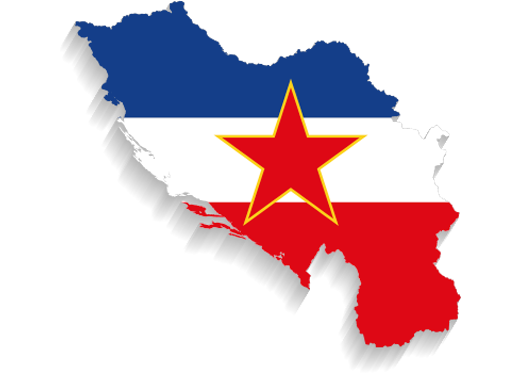(Grant Agreement n. 669194)
Member - Federal executive council (1971-1974)

From the mid-1960s to the late 1970s, Boris Šnuderl was one of the leading actors of Yugoslavia’s policy towards the Western European economic system. A member of the Yugoslav government from 1971 to 1974, he was responsible for Yugoslavia’s relations with the EEC, EFTA and the OECD. At the same time, from 1966 to 1975, he was Yugoslavia’s representative within the Italian-Yugoslav Mixed Commission for Economic Cooperation. Within the Commission for Foreign Economic relations of the FEC, Šnuderl advocated Yugoslavia’s pro-active stance within the EEC, highlighting the need to develop relations with the Community as as a means to face the country’s balance of trade problems. He publicly addressed this view in internal debates within the president Federal executive council (Dzemal Bijedić), in internal conversations with the Cabinet of the President of the Republic (in particular with Marko Vrhunec), in direct dealings with Yugoslavia’s embassy to the EEC (Petar Miljević), and through a number of articles published between 1973 and 1975 in Medjunarodna Politika. Šnuderl also identified Italy as Yugoslavia’s crucial partners within the Community. Together with Miloš Minić, he negotiated the Osimo Treaty with Italy and conceived the creation of a free-trade area encompassing the bordering regions of the two countries. For him, this was a way a favour Yugoslavia’s – and Slovenia’s – economic ties with the Western European economic system.
|
As the leading intellectual of the League of Communists of Yugoslavia, Kardelj was a major protagonist in the re-launch of the self-management system in the 1970s. He was very active in communicating the "economic modernity" of Yugoslavia to t... |
|
Mirko Tepavac was the Federal foreign affairs secretary from 1969 to 1972. During this period, he gave a fundamental contribution to the country’s predicaments towards Western European economic integration. A representative of Serbia&rsq... |
|
Petar Miljević was Yugoslavia’s second ambassador to the EEC from 1971 to 1977. He succeeded Miloš Oprešnik, confirming the crucial role played by the Yugoslav embassy in Community Brussels. A permanent member of the Yugosl... |
|
A Slovene member of the LCY, Vrhunec was the Head of Cabinet of the President of the Republic between 1967 and 1973. He regarded positively Yugoslavia’s opening to the Western European economic system, favouring Tito’s positive sta... |
|
Bora Jeftić was Yugoslavia’s ambassador to the EEC from 1977 to 1981. As such, he was one of the leading actor behind Yugoslavia’s negotiations for the EEC-Yugoslavia Co-operation agreement in 1980. During the turbolent post-1974 p... |
|
A Slovene member of the LCY, banker, businessman and career diplomat, Miloš Oprešnik was appointed as Yugoslavia’s first official representative to the EEC in September 1968. Oprešnik belonged to a generation of poli... |
|
A long-standing member of the LCY, Miloš Minić became the Federal foreign affairs secretary after the normalisation process which put an end to the "nationalist" course in Croatia, Slovenia and Serbia between 1971 and 1972. Although he ... |
|
A member of the Montenegrin branch of the LCY and the President of the Federal executive council from 1971 to 1977, when he died in an airplane incident, Džemal Bijedić could be described as the real master of the country’s approach tow... |
|
A leading member of the Slovene branch of the LCY, Smole hugely contributed to debates on Yugoslavia’s stance towards Western European economic integration as a member of the Yugoslav government in charge of relations with the EEC betwee... |
|
Milica Žiberna worked uninterruptedly as an Assistant to the Federal foreign trade secretariat throughout the 1970s. In this function, she coordinated relations between the ministerial apparatus and the Yugoslav representation to the EEC. Not ... |
|
Letter by Šnuderl to Marko Vrhunec
AJ KPR 837 I-3-b/42
In this letter, Šnuderl underlines the importance of using the "self-management" reforms to emphasise the Yugoslavia's reformist status vis-à-vis the President of of the European Commission. - Available only in the Archive: http://www.arhivyu.gov.rs/ |
|
Letter by Boriš Šnuderl to Milica Žiberna
Aj 751 894
In this letter, the Slovene member of the Federal Executive Council, Boriš Šnuderl refers to a recent meeting between Petar Milijević, Yugoslavia's ambassador to the EEC, and a representative of the European Investment Bank. It is argued that Yugoslavia should develop financial relations with the EEC. - Available only in the Archive: http://www.arhivyu.gov.rs/ |
|
Information on relations between Yugoslavia and EEC on the occasion of the travel by Sicco Mansholt, President of the European Commission
AJ KPR 837 I-3-b/42 | 1227/1
In this document,addressed to the Cabinet of the President of the Republic, the Cabinet of Šnuderl emphasises the need to enlgarge the spheres of economic cooperation with the Community. - Available only in the Archive: http://www.arhivyu.gov.rs/ |
